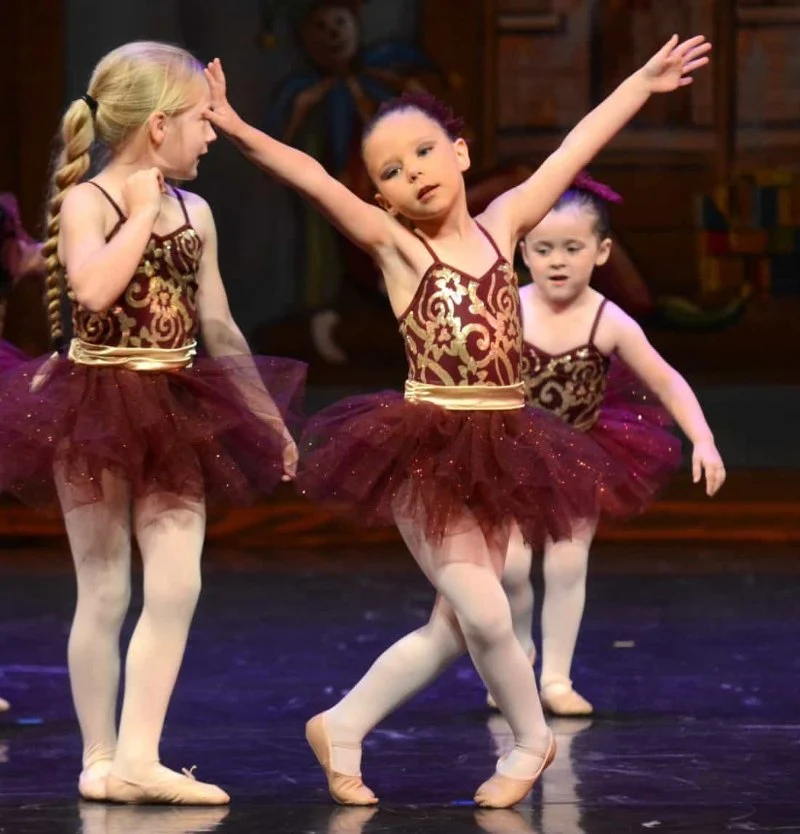
The Science of How Learning Dance Benefits Your Brain
- How Dance Affects the Brain
- Cognitive Benefits of Learning Dance
- Emotional Benefits of Dance
- Real-Life Story: How Dance Transformed a Life
- Tips to Boost Your Brain with Dance
How Dance Affects the Brain
When you learn to dance, your brain is engaged in a powerful workout. Dance isn’t just about physical movement; it also involves memory, problem-solving, and spatial awareness, which activate multiple regions of the brain. Scientific studies show that learning dance is one of the best ways to boost cognitive function and mental agility.
One of the key reasons dance has such an impact on the brain is due to its complex nature. Unlike simple physical exercises, dancing requires a combination of remembering steps, responding to rhythm, and moving your body in a coordinated manner—all of which challenge the brain. This multi-tasking aspect of dance activates regions related to motor skills, memory, and emotional processing, creating a synergy that benefits brain health.

Crunch Fitness - Frisco / crunch fitness frisco reviews
3865 Preston Rd, Frisco, TX 75034, USA
Cognitive Benefits of Learning Dance
Studies have shown that dancing can enhance cognitive function and improve mental clarity. Here’s how learning dance benefits your brain on a cognitive level:

Imagery In Motion Dance / imagery in motion
308 FM1830 STE 16C, Argyle, TX 76226, USA
1. Boosts Memory and Learning
Learning and practicing dance routines enhances memory retention and recall. A study published in the "Journal of Neuroscience" demonstrated that dance improves memory function and reduces the risk of developing cognitive decline. This is because dance requires you to memorize steps, patterns, and sequences, which stimulates the hippocampus—the area of the brain associated with memory formation.
As you learn new dance moves, your brain creates new neural connections, making it easier to retain information over time. For example, ballroom dancers often memorize intricate footwork and choreography, which sharpens their ability to process and recall information quickly.
2. Enhances Focus and Concentration
Dance demands attention to detail. Whether you’re practicing a specific move or coordinating with a partner, staying focused is essential. This heightened focus can translate into better concentration in other areas of life, such as work or academics.
Research has shown that dance can help improve cognitive control, which involves focusing attention, switching tasks, and filtering distractions. These skills are crucial not just for dancing but for everyday tasks that require attention to detail.
3. Improves Spatial Awareness
Spatial awareness is the ability to understand and navigate the space around you. Dance improves spatial orientation because it requires you to move in specific directions and maintain awareness of your surroundings. For instance, a dancer needs to know how far they are from their partner or other objects in the room to avoid collisions and execute movements smoothly.
This enhanced spatial awareness has been linked to improvements in other areas, such as driving and navigating through busy spaces. Dancers often report feeling more connected to their environment, which can improve overall coordination and balance.
Emotional Benefits of Dance
In addition to cognitive benefits, dance has a profound impact on emotional health. Here’s how learning dance can help improve your emotional well-being:
1. Reduces Stress and Anxiety
Dance is a form of physical activity, which means it helps reduce stress by releasing endorphins—the body’s natural “feel-good” hormones. When you dance, especially to uplifting music, you can immediately feel more energized and less anxious.
Many studies have shown that regular dancing can help manage symptoms of stress and anxiety. Social dance forms, such as salsa or tango, have the added benefit of social interaction, which can reduce feelings of loneliness and improve your mood.
2. Enhances Self-Esteem and Confidence
Learning dance and mastering new skills can significantly boost your self-esteem. As you progress in dance, you gain a sense of accomplishment, which translates into greater confidence. Performing in front of others, whether at a recital or simply sharing your moves with friends, can also improve your sense of self-worth.
Additionally, dance allows for self-expression, which can help you connect with your emotions and feel more in tune with your body. This process of expressing yourself through movement can lead to greater emotional stability and a sense of inner peace.
Real-Life Story: How Dance Transformed a Life
Take the story of Emily, a woman who struggled with anxiety and low self-esteem. After years of battling with stress and isolation, Emily decided to try dance classes. At first, she felt hesitant, unsure of her ability to keep up with the choreography. However, after just a few months of learning ballroom dance, Emily noticed significant improvements in her mood and overall mental clarity.
“Dance gave me a way to express myself without words,” Emily said. “It helped me feel more confident and gave me something to look forward to every week. Not only did I get better at dancing, but I also felt more at peace with myself.”
Emily’s story is a testament to how learning dance can be a transformative experience for both the mind and the body. Through consistent practice and dedication, dance became a source of emotional healing and cognitive enhancement for her.
Tips to Boost Your Brain with Dance
If you want to take full advantage of the brain-boosting benefits of dance, here are a few tips to help you get started:
- Try New Styles: Experimenting with different types of dance, such as hip-hop, ballet, or Latin dance, challenges your brain and keeps your practice exciting and fresh.
- Stay Consistent: Regular practice is key. The more you dance, the more you’ll strengthen the neural pathways associated with memory, focus, and coordination.
- Dance with Others: Social dance forms are not only fun but also foster emotional connections, which enhance the social and emotional benefits of dance.
- Take Dance Classes: If you’re new to dancing, enrolling in a class can provide structure and guidance, helping you improve faster while enjoying the benefits of social interaction.
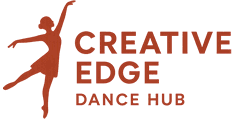
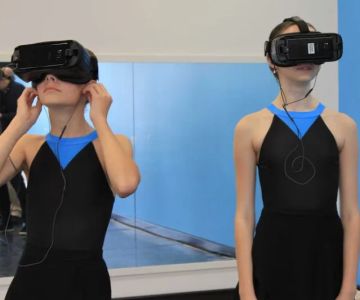
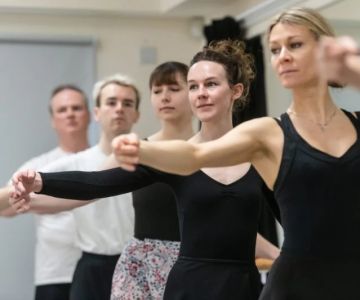

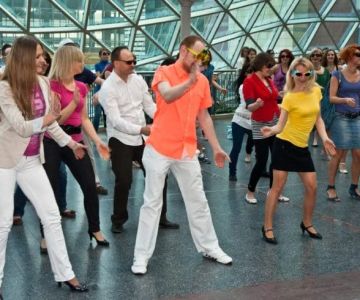


 Kristy's Dance Academy4.0 (16 reviews)
Kristy's Dance Academy4.0 (16 reviews) Rising Stars Gymnastics4.0 (68 reviews)
Rising Stars Gymnastics4.0 (68 reviews) North Carroll Dance Inc.4.0 (17 reviews)
North Carroll Dance Inc.4.0 (17 reviews) VanHook’s Dancing Divas Den0.0 (0 reviews)
VanHook’s Dancing Divas Den0.0 (0 reviews)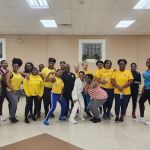 THE DANCING WITHOUT SIN®️ MOVEMENT CENTER5.0 (7 reviews)
THE DANCING WITHOUT SIN®️ MOVEMENT CENTER5.0 (7 reviews)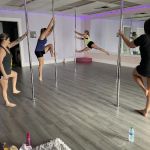 Premiere Pole and Fitness5.0 (1 reviews)
Premiere Pole and Fitness5.0 (1 reviews) How to Use YouTube to Practice Dance Effectively
How to Use YouTube to Practice Dance Effectively How I Learned to Use Neuro‑Feedback in My Dance Training — My Story
How I Learned to Use Neuro‑Feedback in My Dance Training — My Story 10 Best Dance Styles for Absolute Beginners with Two Left Feet
10 Best Dance Styles for Absolute Beginners with Two Left Feet What is Zumba? Fitness Party or Dance Training? | Creative Edge Dance Studio
What is Zumba? Fitness Party or Dance Training? | Creative Edge Dance Studio What is Krump? Clowning and Expressionistic Movement Explained
What is Krump? Clowning and Expressionistic Movement Explained My Story of Teaching Pop & Lock for the First Time — What It Was Really Like
My Story of Teaching Pop & Lock for the First Time — What It Was Really Like